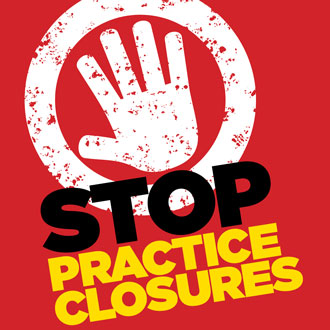Exclusive GP practices in the east of England will be identified by an ‘early warning’ system if they are at the risk of having to close, Pulse can reveal.
NHS England is working with the LMCs in the region on proposals which would see the launch of an ‘index of vulnerability’.
The index is intended to flag practices ‘where a number of issues impacting at the same time may make them vulnerable’, including indicators such as finances, recruitment issues, sickness absences and applications for list closures.
NHS England’s east area team said it will not publicise distressed practices and that it is continuing to discuss what support can be given once vulnerability is identified.
A spokesperson told Pulse that it is hoping to ‘support improved patient experience and continuity of care, by proactive identification and management of issues which many GP practices are currently experiencing’, but stressed that it was not intended as ‘a performance management tool’.
They added: ‘NHS England is working with LMCs in the east on the proposal, which would provide an “early warning” system to identify those practices where a number of issues impacting at the same time may make them vulnerable.’
Related stories
Struggling practices to be offered emergency support after Pulse campaign
Dr Guy Watkins, chief executive of Cambridgeshire LMC, said the move was in the interest of both patients and GPs. He said the LMC had pushed for a support model for practices when stability is threatened ‘before a crisis event rather than only afterwards’.
However he added the ‘most important’ part would be what sort of support NHS England will offer practices.
He said: ‘Cambridgeshire LMC has been working with NHS England for some time to try and agree some support for practices to help review their options when practice stability is threatened, often for workload or financial reasons, before a crisis event, rather than only afterwards.
‘NHS England have proposed an “index of vulnerability” to help them predict problems [but] perhaps more important is our seeking clarity over what NHSE proposes to do in these situations to support practices.’
However GPC chair Dr Chaand Nagpaul said that it would be more useful to have a nationwide approach.
He said: ‘We need a proactive, national, consistent approach rather than one that is occurring piecemeal in some areas. There is no consistency here.
‘We need to remove the burdens on practices, many of which are quite inappropriate.’
It comes as Pulse revealed last month that NHS England has launched a practice support scheme in the south whereby neighbouring practices will be drafted in to provide emergency support to colleagues struggling to keep surgeries afloat.
The initiatives follows camaigning by Pulse for NHS England to offer help to practices at risk of closure amid a hike in practices threatened by financial and workload pressures.

















